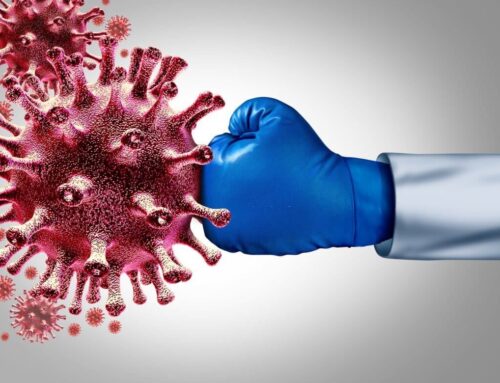The importance of mental health cannot be overstated, especially in situations of chronic wound care. Mental health encompasses one’s emotional, psychological, and social well-being. It affects how a person thinks, acts, and feels, and it helps guide how one handles stress. From childhood through adulthood, mental health is a significant factor in any person’s overall health and well-being.
There are several factors that contribute to mental health, including biological factors like brain chemistry, genetics, and social circumstance, among others. Life experiences and family history also contribute to overall mental health.
During the month of May, the National Alliance on Mental Illness and the Mental Health Foundation celebrate Mental Health Month, focusing on spreading awareness about mental health. While it’s not in May, the World Health Organization observes World Mental Health Day in October, with the objective of raising awareness and mobilizing support for the millions of people who face the reality of mental health needs.
Importance of Mental Health to Healing
As you might imagine, the presence of a chronic, non-healing wound can significantly affect a person’s mental health. In some cases, if the wound smells bad or oozes substantially, it can be embarrassing for patients, often causing them to withdraw from family and social activities. This isolation can often have a significant impact on the person’s self-esteem and quality of life.
Chronic wounds can also take a financial toll on an individual or a family. The mental health impact of a non-healing wound is often exacerbated by the length of time it takes the wound to heal, the cost of wound care dressings, visits to health professionals, and potential infections.
Mental Health’s Impact on Healing
The reverse is also true – those with poor mental health and chronic stress tend to have a more difficult time with wound healing, according to one study. In it, researchers found depression to be a comorbidity in at least 30% of people with chronic wounds, substantially affecting daily living activities and quality of life. Researchers have theorized that depression may slow wound healing through a psycho-immunological effect, as well as through a lack of mobility often associated with depression.
While age, diet, comorbid medical conditions, and decreased activity all have a powerful influence on wound healing, it’s important to recognize the impact mental health has on healing. Although wounds are a physical problem, studies have demonstrated that depression can slow healing rates. For example, this often happens with dermal and mucosal healing after a surgical procedure. Psychological stress has a substantial impact on wound repair and can directly influence the process, likely by promoting health-damaging behaviors.
Also, Read How Hypnotherapist St. Petersburg Can Help Change Lives?
Delayed wound healing raises the risk for infections and complications, and it can also lengthen the time a patient spends in hospitals or skilled nursing facilities (SNFs). In one meta-analysis, researchers found a correlation between psychological stress and wound healing that suggests it’s not only statistically significant but also clinically relevant.
What Factors Contribute to Wound-Related Mental Health Challenges?
Pain is one feature of chronic wounds that is known to trigger distress and stress in patients. This can, in turn, lead to both depression and delayed wound healing. Although pain is a common experience for people who have chronic wounds, it may also be the result of pathophysiology or trauma during wound care. One of the goals in treating chronic, non-healing wounds is to minimize the trauma and pain for the patient, thus, having a significant impact on his or her mental health.
Psychological distress can be triggered by chronic pain, but it can also be triggered by the anticipation of pain, like during a dressing change. Psychological distress can also result from adjusting to life changes related to living with a chronic wound. While wounds may cause pain and discomfort, individuals may also be worrying about their finances, changes to quality of life, reduced mobility, or other changes to their body image.
Learn More How do you Get rid of Gummy Smile Botox?
Although much is said about body image during youth, it’s actually an important piece of well-being throughout life, even as we age – and perhaps doubly so for those with chronic wounds. How we feel about ourselves physically will consistently impact how we function mentally.
Friends and family also play an important role in a person’s healing, as they have a unique opportunity to provide support in a more personal way than professionals are often able.
Addressing a person’s mental state, such as anxiety, depression, fear, or loss and grief, can also help mitigate the negative impacts of mental health on chronic wound healing. Interdisciplinary care, as well as treating the patient as holistically as possible – from mental well-being to physical health, and including all pertinent factors in between – are effective tools against mental health challenges.
A Bedside Wound Care Team Can Make a Difference to QOL
No matter what a patient may encounter during their wound treatment, many will experience some level of stress. Using a wound care team that operates at the bedside can also help reduce a patient’s level of stress. Wound care physicians and certified wound care nurses can improve healing and reduce cost without patients being transported to a wound care clinic on a daily basis. Despite the fact that wound care clinics have met a growing need over the last 40 years, they are no longer a necessity to get positive results, due to the proven strategies used by modern-day wound care physicians at the bedside.
Read More @ Stay Safe from Corona Virus: Use Face masks
Physicians often choose the wound care field to fulfill a desire for better work-life balance and flexibility, as well as a passion for working with the elderly and improving their quality of life (QOL). Physicians who want to remain hands-on see wound care as a way of achieving their goal and continuing to make a significant impact in the lives of others. Unifying themes in each of these physicians is the satisfaction of helping someone get better and delivering true positive medical outcomes that are recognized and measurable – both of which offer a clear benefit to patient mental health.





Leave A Comment